Current polls highly favour Biden to win the US election.
But do these polls *influence* the result of the election itself by influencing the voting decision of people?
The evidence says *yes* and that it most likely favours Biden (thread)
But do these polls *influence* the result of the election itself by influencing the voting decision of people?
The evidence says *yes* and that it most likely favours Biden (thread)
You could imagine two possible effects of polls:
⁃Bandwagon effect: polls motivate the camp in front, demotivate the camp behind
⁃Underdog effect: polls motivate the camp behind (back to the wall), demotivate the camp in front (resting on laurels)
⁃Bandwagon effect: polls motivate the camp in front, demotivate the camp behind
⁃Underdog effect: polls motivate the camp behind (back to the wall), demotivate the camp in front (resting on laurels)
A very interesting paper finds that when a party is just behind, the underdog effect may exist. For that reason, parties may downplay their chances and present themselves as challengers.
https://papers.ssrn.com/sol3/papers.cfm?abstract_id=2528690">https://papers.ssrn.com/sol3/pape...
https://papers.ssrn.com/sol3/papers.cfm?abstract_id=2528690">https://papers.ssrn.com/sol3/pape...
But the evidence tends to suggest that when the expected result is not close, a bandwagon effect prevails: polls indicating that a candidate is ahead increase the candidate’s chances of winning the election.
For instance, we found that there is a bandwagon effect (the supporters of the losing party are less likely to vote) in French overseas territories who vote *after* the exit polls from the mainland have been released.
https://www.sciencedirect.com/science/article/abs/pii/S0014292115000483">https://www.sciencedirect.com/science/a...
https://www.sciencedirect.com/science/article/abs/pii/S0014292115000483">https://www.sciencedirect.com/science/a...
In the UK, general elections were staggered over two weeks before 1918. Research found a bandwagon effect in favour of the winning side which peaked around the 8th day of voting.
https://link.springer.com/content/pdf/10.1007/s11127-012-0027-9.pdf">https://link.springer.com/content/p...
https://link.springer.com/content/pdf/10.1007/s11127-012-0027-9.pdf">https://link.springer.com/content/p...
In the US, the possibility of such effect of early information has been discussed as the “West Coast effect”: the fact that early results from the East Coast can influence voters on the West Coast. http://www.digitalroots.io/blog/west-coast-effect/">https://www.digitalroots.io/blog/west...
Effect of early results are extreme, but they suggest good polls can motivate and bad polls can demotivate voters, creating a bandwagon effect.
As a consequence, partisan organisations select good polls to push a winning narrative to their base. https://abs.twimg.com/emoji/v2/... draggable="false" alt="👇" title="Rückhand Zeigefinger nach unten" aria-label="Emoji: Rückhand Zeigefinger nach unten">
https://abs.twimg.com/emoji/v2/... draggable="false" alt="👇" title="Rückhand Zeigefinger nach unten" aria-label="Emoji: Rückhand Zeigefinger nach unten">
https://www.tandfonline.com/doi/full/10.1080/19331681.2015.1063366?casa_token=c-WuZPXqBv8AAAAA%3AGmVEVIG2V5jVnYwOCZ-VZjisKv5L3sQG-uq7XE4RgxsE1RuzPmu1Gsp2P1iOpVkDFq2FaiEnAjv9mQ">https://www.tandfonline.com/doi/full/...
As a consequence, partisan organisations select good polls to push a winning narrative to their base.
https://www.tandfonline.com/doi/full/10.1080/19331681.2015.1063366?casa_token=c-WuZPXqBv8AAAAA%3AGmVEVIG2V5jVnYwOCZ-VZjisKv5L3sQG-uq7XE4RgxsE1RuzPmu1Gsp2P1iOpVkDFq2FaiEnAjv9mQ">https://www.tandfonline.com/doi/full/...
Polling organisations are themselves typically not partisan in democracies. They care about their reputation and parties can’t easily influence them. Polling errors tend to be due to their methodology and sample. https://fivethirtyeight.com/features/which-pollsters-to-trust-in-2018/">https://fivethirtyeight.com/features/...
But something can be influenced: betting markets. They are used to estimate the candidates’ winning chances.
In 2020, Trump’s chances have been surprisingly high in betting markets given the polls.
ht @arpitrage
In 2020, Trump’s chances have been surprisingly high in betting markets given the polls.
ht @arpitrage
Research has shown that, in theory, such markets can be influenced by manipulators trying to move prices in one direction.
https://academic.oup.com/jeea/article-abstract/5/2-3/554/2295776
And">https://academic.oup.com/jeea/arti... experiments have shown that manipulators can indeed push the market prices in the direction they wish. https://www.sciencedirect.com/science/article/pii/S0167268112002223?casa_token=ba2PS0w1kToAAAAA:Q6bWRTHp77HQvZsNX5gGliYgoMY0sqP-7jxk9PqP_wLYrNRUtTt8KUMdsNKBbp2zzhG0-XSUHj0">https://www.sciencedirect.com/science/a...
https://academic.oup.com/jeea/article-abstract/5/2-3/554/2295776
And">https://academic.oup.com/jeea/arti... experiments have shown that manipulators can indeed push the market prices in the direction they wish. https://www.sciencedirect.com/science/article/pii/S0167268112002223?casa_token=ba2PS0w1kToAAAAA:Q6bWRTHp77HQvZsNX5gGliYgoMY0sqP-7jxk9PqP_wLYrNRUtTt8KUMdsNKBbp2zzhG0-XSUHj0">https://www.sciencedirect.com/science/a...
There is an incentive to manipulate betting markets’ prices, to influence the election.
Likely as a result, we have found that political markets are quite biased: Trump’s winning probability of “40%” may actually mean only 20% without a bias.
https://academic.oup.com/ej/article-abstract/123/568/491/5079498">https://academic.oup.com/ej/articl...
Likely as a result, we have found that political markets are quite biased: Trump’s winning probability of “40%” may actually mean only 20% without a bias.
https://academic.oup.com/ej/article-abstract/123/568/491/5079498">https://academic.oup.com/ej/articl...
The best predictions are certainly given by @FiveThirtyEight and @TheEconomist, rather than by betting markets. (End)
https://projects.fivethirtyeight.com/2020-election-forecast/
https://projects.fivethirtyeight.com/2020-elec... href=" https://projects.economist.com/us-2020-forecast/president">https://projects.economist.com/us-2020-f...
https://projects.fivethirtyeight.com/2020-election-forecast/

 Read on Twitter
Read on Twitter
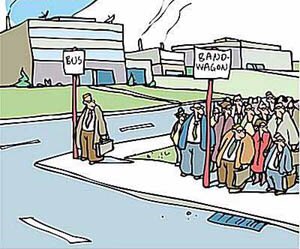
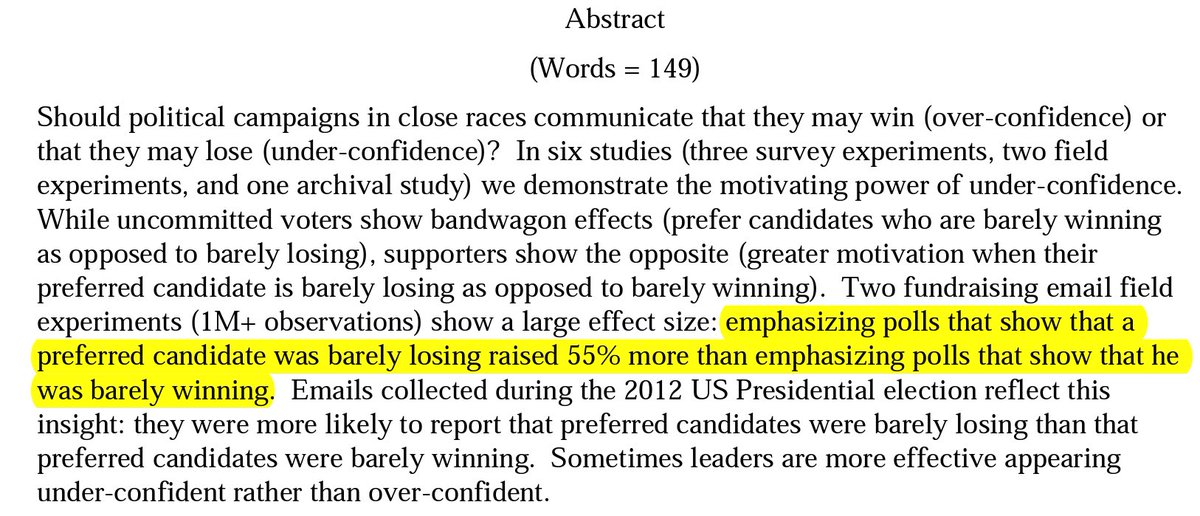
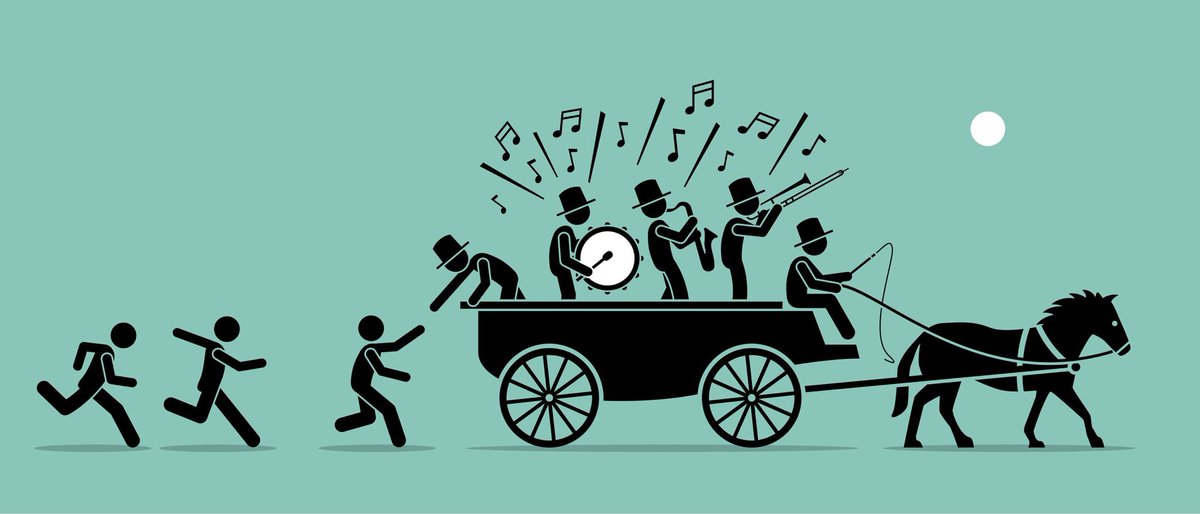
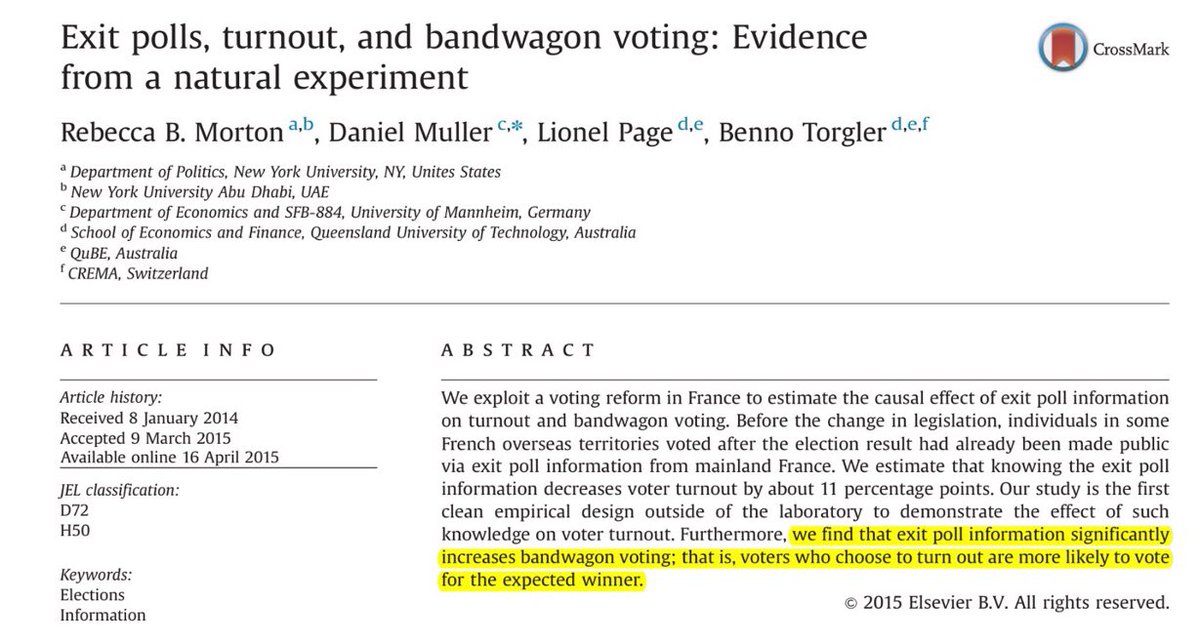
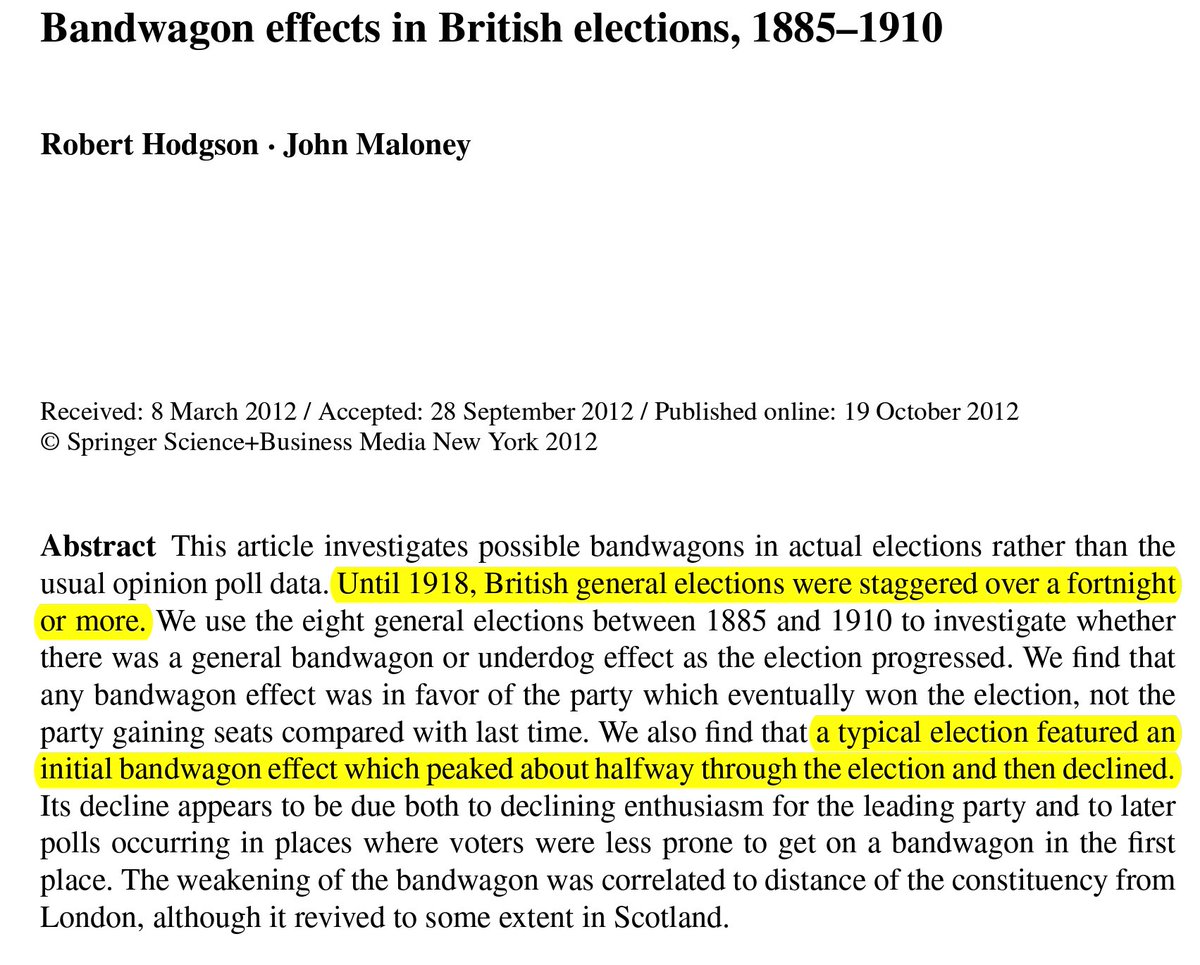
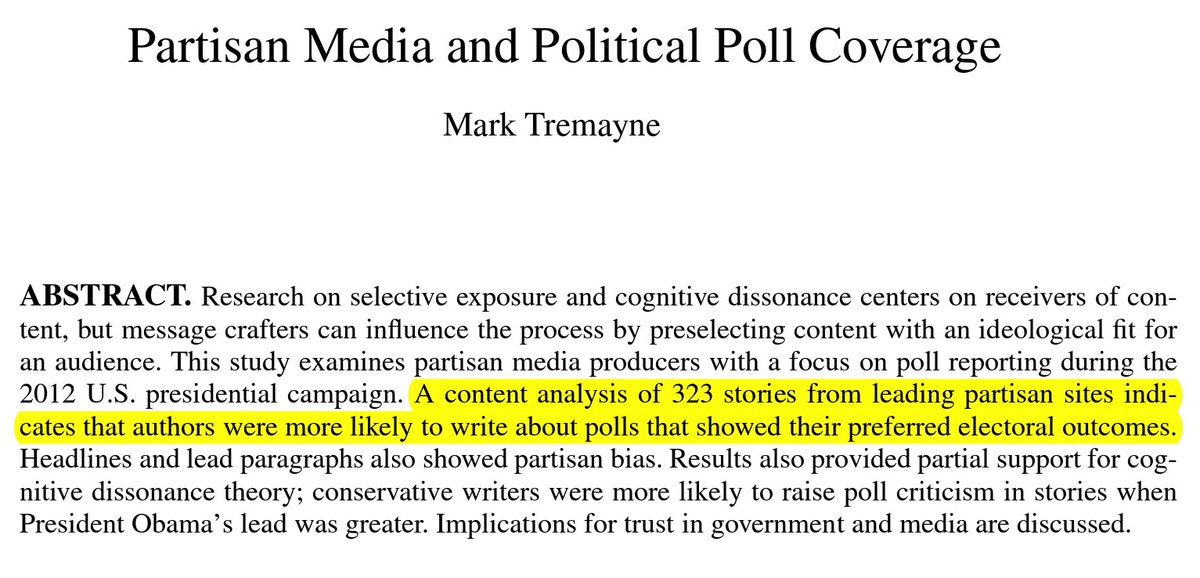 https://www.tandfonline.com/doi/full/..." title="Effect of early results are extreme, but they suggest good polls can motivate and bad polls can demotivate voters, creating a bandwagon effect. As a consequence, partisan organisations select good polls to push a winning narrative to their base.https://abs.twimg.com/emoji/v2/... draggable="false" alt="👇" title="Rückhand Zeigefinger nach unten" aria-label="Emoji: Rückhand Zeigefinger nach unten"> https://www.tandfonline.com/doi/full/..." class="img-responsive" style="max-width:100%;"/>
https://www.tandfonline.com/doi/full/..." title="Effect of early results are extreme, but they suggest good polls can motivate and bad polls can demotivate voters, creating a bandwagon effect. As a consequence, partisan organisations select good polls to push a winning narrative to their base.https://abs.twimg.com/emoji/v2/... draggable="false" alt="👇" title="Rückhand Zeigefinger nach unten" aria-label="Emoji: Rückhand Zeigefinger nach unten"> https://www.tandfonline.com/doi/full/..." class="img-responsive" style="max-width:100%;"/>
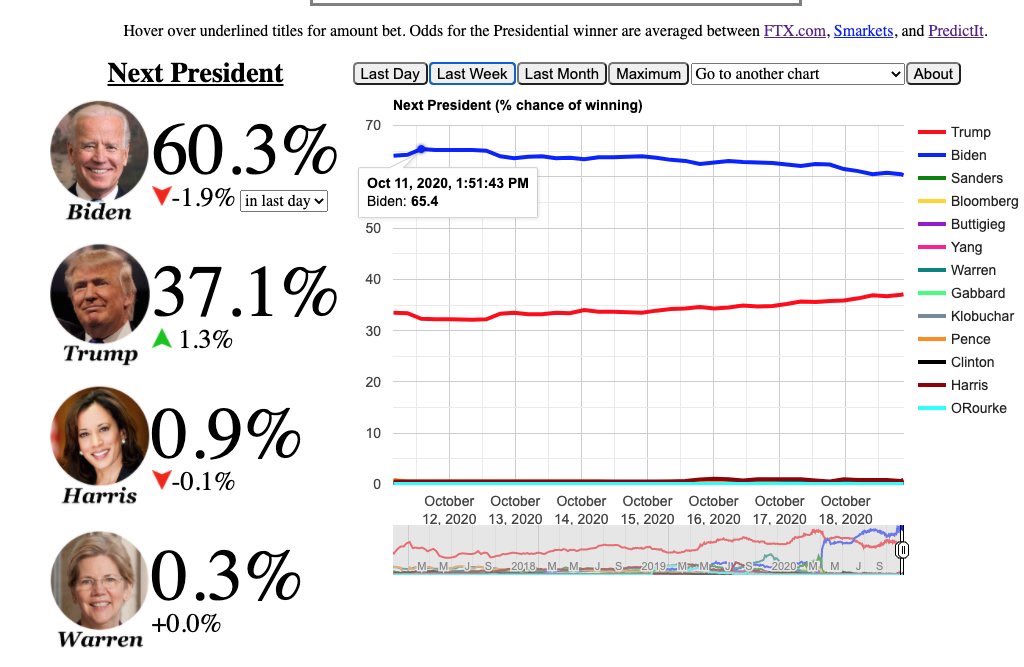
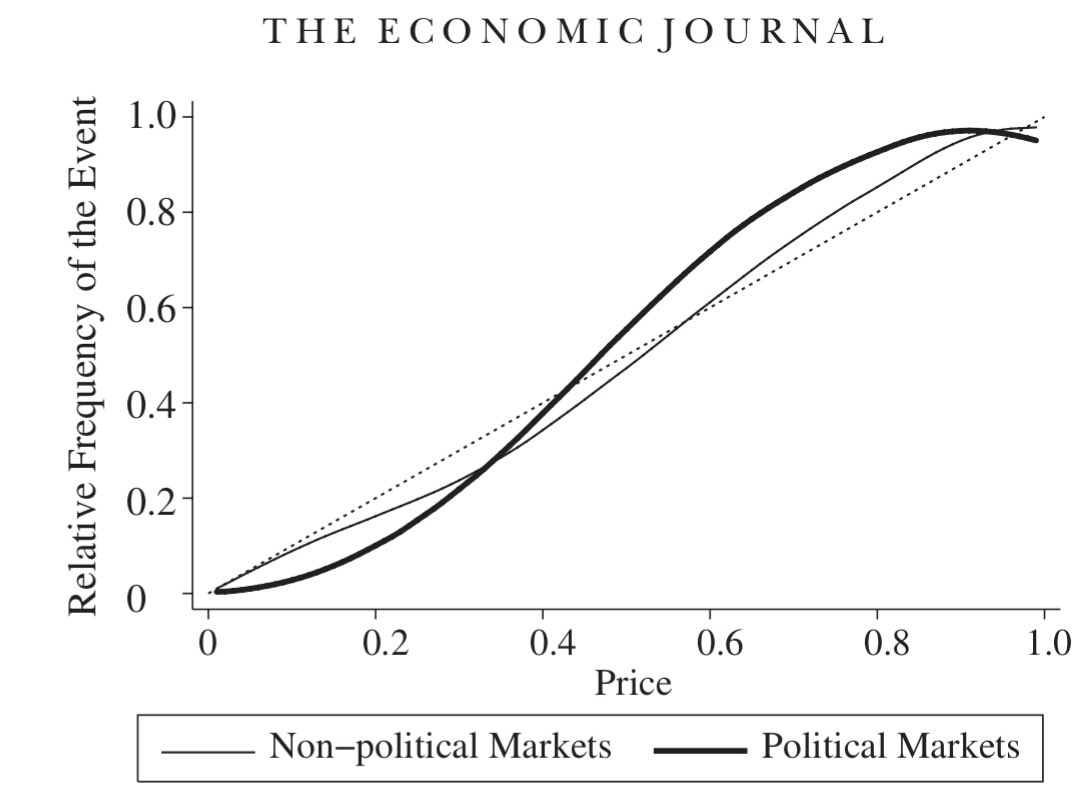
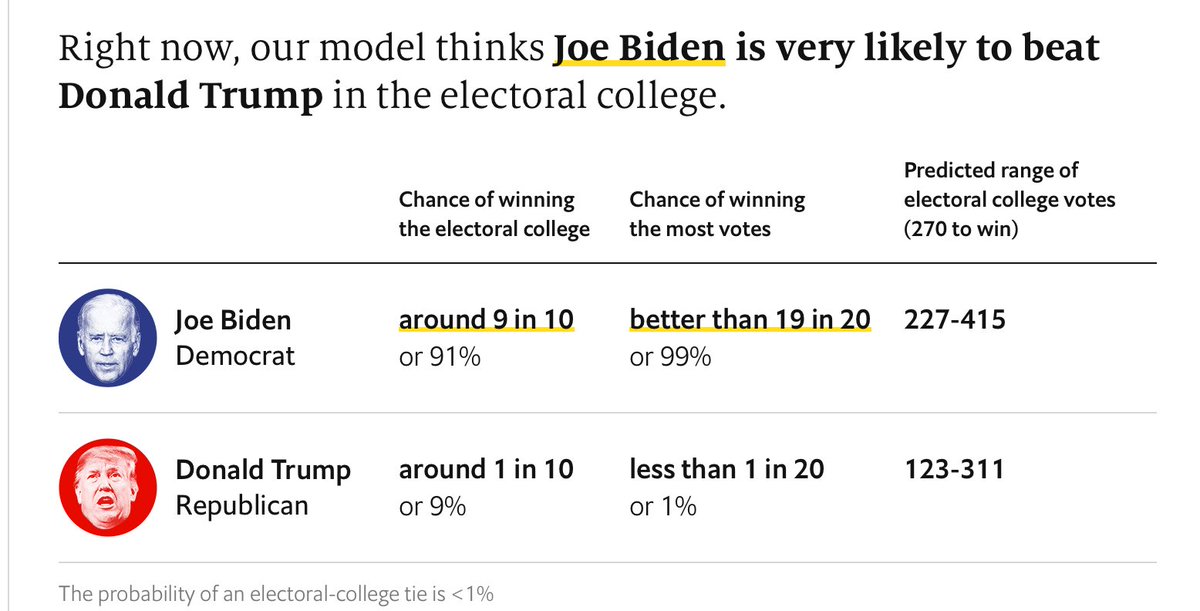 https://projects.economist.com/us-2020-f..." title="The best predictions are certainly given by @FiveThirtyEight and @TheEconomist, rather than by betting markets. (End) https://projects.fivethirtyeight.com/2020-elec... href=" https://projects.economist.com/us-2020-forecast/president">https://projects.economist.com/us-2020-f...">
https://projects.economist.com/us-2020-f..." title="The best predictions are certainly given by @FiveThirtyEight and @TheEconomist, rather than by betting markets. (End) https://projects.fivethirtyeight.com/2020-elec... href=" https://projects.economist.com/us-2020-forecast/president">https://projects.economist.com/us-2020-f...">
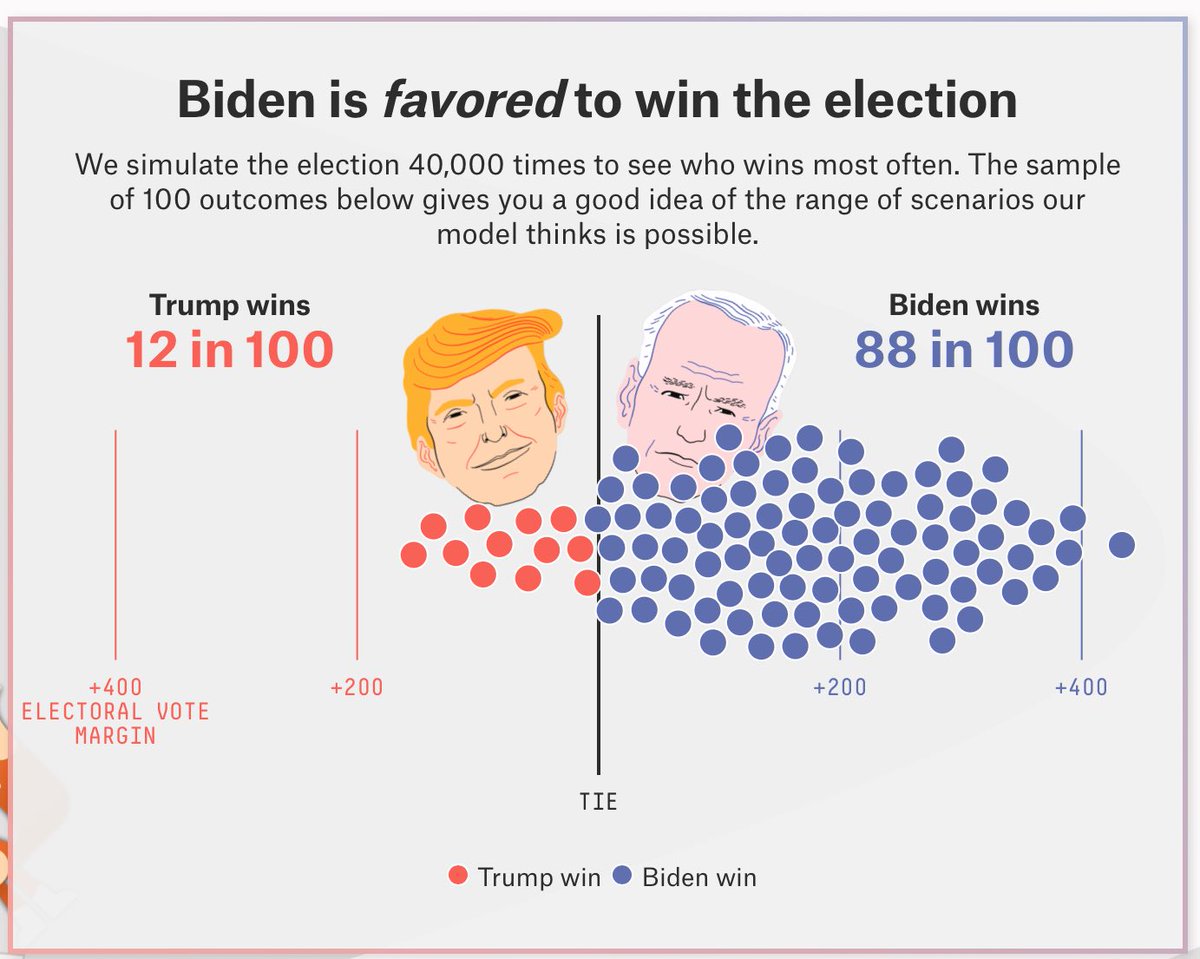 https://projects.economist.com/us-2020-f..." title="The best predictions are certainly given by @FiveThirtyEight and @TheEconomist, rather than by betting markets. (End) https://projects.fivethirtyeight.com/2020-elec... href=" https://projects.economist.com/us-2020-forecast/president">https://projects.economist.com/us-2020-f...">
https://projects.economist.com/us-2020-f..." title="The best predictions are certainly given by @FiveThirtyEight and @TheEconomist, rather than by betting markets. (End) https://projects.fivethirtyeight.com/2020-elec... href=" https://projects.economist.com/us-2020-forecast/president">https://projects.economist.com/us-2020-f...">


